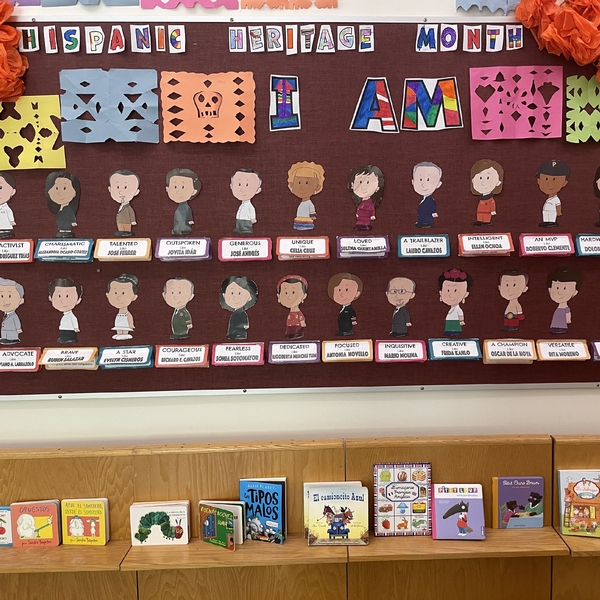World Languages at SIS: An Interview with Madame Brie / Señora Brie (Briana Kuruzovich)

Madame / Señora Brie has been a part of the SIS family since 2019, when she began teaching in the after school French Club, officially joining the faculty in 2021 teaching both Spanish and French. In this blog, we learn about the inspiration and approach to world language learning at SIS!
Q: What inspired you to teach languages?
A: I've always loved geography, traveling, and exploring new cultures. I also love to learn new things and consider myself a lifelong learner. And I enjoy sharing all of that with others. Two things inspired me to learn and teach languages the most: My Cajun relatives, who spoke a language that I could not understand as a child but which fascinated me, and a month I spent traveling all around Europe when I was nine years old. I had never traveled by airplane up until that point, so going so far away and seeing so many new cultures and languages made a big impression on me and made me want to learn more about ways of life that are different from my own.
Q: Why is it important that SIS is committed to teaching students Spanish at an early age?
A: I love that SIS is committed to starting world language at an early age since childhood is the best time to learn a new language! Not only will children remember new phrases easily, but they organically come to the realization that people all over the world are different and that there's no one "right way" to speak or to be. Students learn that people think differently through the lens of their language. For example, in many languages, the word "ball" is different depending on the type of ball. Is it small and hard? Inflated? In English, we can get by with the word "ball" in both cases, but in some languages, a greater distinction is made. This shows that people categorize things in the world depending on what language they speak. The idea that we don't all see things the same way, and that's OK, is fundamental to language learning.
Q: What techniques do you find most effective?
A: In an effort to make learning a foreign language as natural for our students as possible, Señora Chocolate and I provide comprehensible input. That means the language they hear in class is at a level slightly above their ability but can be understood through visuals, context, cognates, etc. Therefore, foreign language learning mimics the way students learned their native language, by hearing speech repeatedly and gaining understanding naturally. One way I do this with the younger students is by mirroring what they are doing in their other classes but in Spanish. So every class starts with introductory songs paired with movement, and we talk about the calendar and the weather. Tons of vocabulary is embedded in this: greetings and responses in our songs, numbers as we count to the date, the colors of the numbers on the calendar, the days of the week, and obviously weather expressions and seasonal vocabulary. The kids start picking up on these things quickly, and before long they can say "It's sunny" without ever having been taught it explicitly because they have been hearing and using these words in an organic way.
Q: How is the addition of French impacting our students?
A: I think it's important for students to be able to choose the language they pursue. The more interested a student is, the better they are likely to do. People might have a strong interest in one or the other - maybe they like the sound of a certain language, maybe it's family heritage - whatever the case may be, it's good to have options. Sometimes parents worry that children will get confused learning multiple languages, but that is the best time to do it! Our brains were designed to pick up language. Students who take both Spanish and French will notice many similarities due to their Latin origin and generally seem to have an easier time with the second foreign language since they already have somewhat of a base in the first. Studies have proven that being multilingual strengthens cognitive abilities, as well as makes people more tolerant towards other cultures. I tell my students that knowing more than one language is a superpower!
